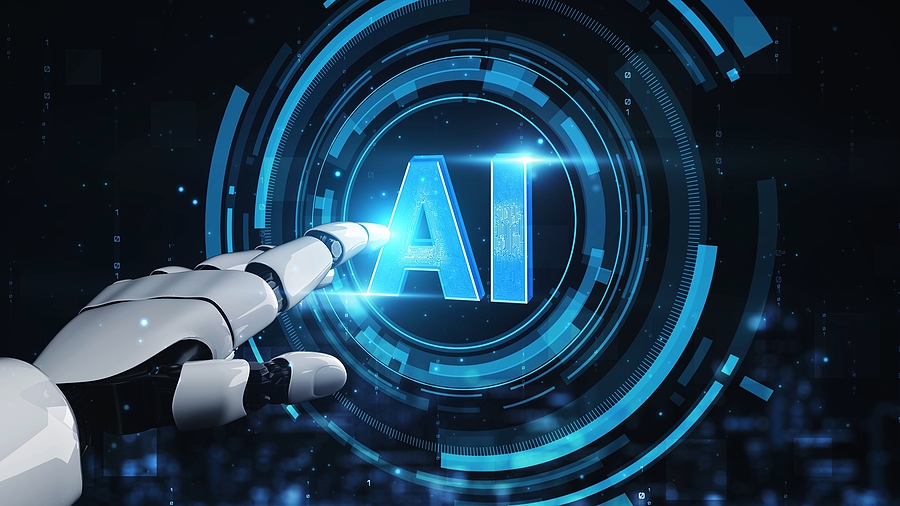It has been nearly three years since OpenAI released ChatGPT as a free “research preview” to American consumers. Since then, OpenAI has released its latest version of its “generative pre-training transformer,” ChatGPT-5. If one searches for the “tipping point” for accelerating the “AI boom,” ChatGPT would be a reasonable choice.
Three years later, how do Americans view AI technologies operating in our society?
According to a survey in April undertaken by KPMG of 1,019 U.S. adults, while 70 percent of American workers are enthusiastic to leverage AI’s benefits and 61 percent have already had positive effects for incorporating it into their work — 75 percent remain concerned about negative outcomes, with 43 percent expressing low confidence (“trust”) in commercial and government actors to develop and use AI responsibly.
In a June survey of 5,000 U.S. adults, Menlo Ventures, a venture capital and consulting firm, reported that 61 percent of U.S. adults have used AI in the last six months, while 19 percent interact with AI daily.
According to a July survey of more than 1,000 U.S. adults by SEO and digital marketing consultant Joe Youngblood, 17.12 percent of consumers say they are using an AI system multiple times daily, 15.90 percent say they are using an AI system at least once daily, and “heavy AI users” make up just slightly under one-third of all consumers (33.02 percent).
In September, the Gallop organization released a poll of 3,128 U.S. adults on their attitudes concerning AI and found that 98 percent of Americans report seeing or hearing about AI in the previous 12 months (typically from social media or news outlets), but 8 percent consider themselves “very knowledgeable” about AI technologies.
A substantial gap exists between awareness and usage, as only 39 percent of respondents say they use AI at least sometimes for work, education or personal tasks. For most Americans, trust remains limited, with 60 percent distrusting AI to make fair and unbiased decisions.
Also in September, a Pew Research Center report found that among U.S. adults, that 53 percent of 5,023 respondents believe that the increased societal use of AI technologies will worsen creative thinking, while 16 percent believe it will become better; 50 percent believe that it will worsen a person’s ability to form meaningful relationships with other people, with 5 percent arguing that it will become better; 40 percent believe that it will worsen our ability to make difficult decisions, while 19 percent will make it better; and 38 percent believe that it will worsen people’s problem solving abilities, while 29 percent believe it will improve them.
A majority of Americans (57 percent) in the Pew survey rate the risks of AI for society as high; 25 percent see high benefits while 15 percent rate the risks and benefits as significant. Finally, 73 percent of Americans say it is essential for people to understand what AI is.
Furthermore, results of an October Insights & Issues/TIPP poll reveal that of 1,362 adult Americans surveyed, only 17 percent believe that AI technologies will create jobs, while 54 percent responded that it would mostly take away jobs, with 14 percent unsure or 15 percent believing it will not make much difference.
In addition, the Insights & Issues/TIPP poll found that 21 percent of respondents believe that AI technologies will bring significant benefits worth the risks, while 45 percent believe it is dangerous and its risks are being downplayed, and 14 percent were unsure. Twenty percent believe it is overhyped and will not live up to its promises.
In 2025, the “AI paradox” found in survey results is that there is widespread use of AI technologies, with KPMG reporting 61 percent usage, and Gallop reporting 39 percent usage. SEO/Youngblood reporting 33 percent “heavy usage” by consumers.
Nevertheless, KPMG reports 75 percent are concerned about “negative outcomes,” and Gallop reports 60 percent of Americans distrust AI to make “fair and unbiased decisions.” Pew reports that 57 percent of Americans rate the risks of AI for American society as “high.”
What is the key to understanding (and addressing) this AI paradox? First, the Gallop poll uncovered that 8 percent of U.S. adults consider themselves “very knowledgeable” about AI technologies. In the Pew report, 73 percent of Americans say it is extremely or very important for people to understand what AI is.
For Big Tech, consumer ignorance of AI technologies and its potential effect, or threat, to American society requires an industry response, one that educates American consumers on what AI is and is not.


